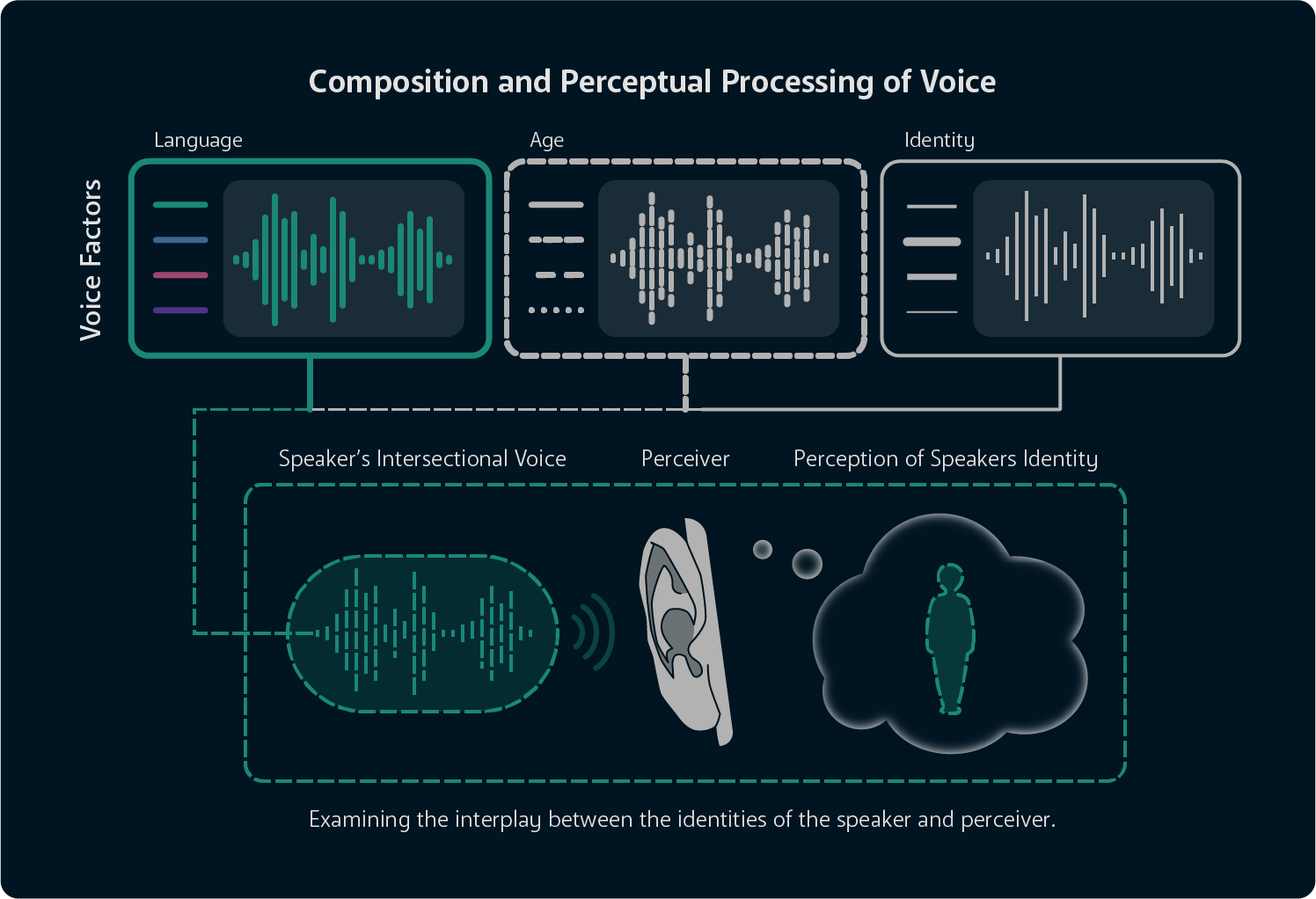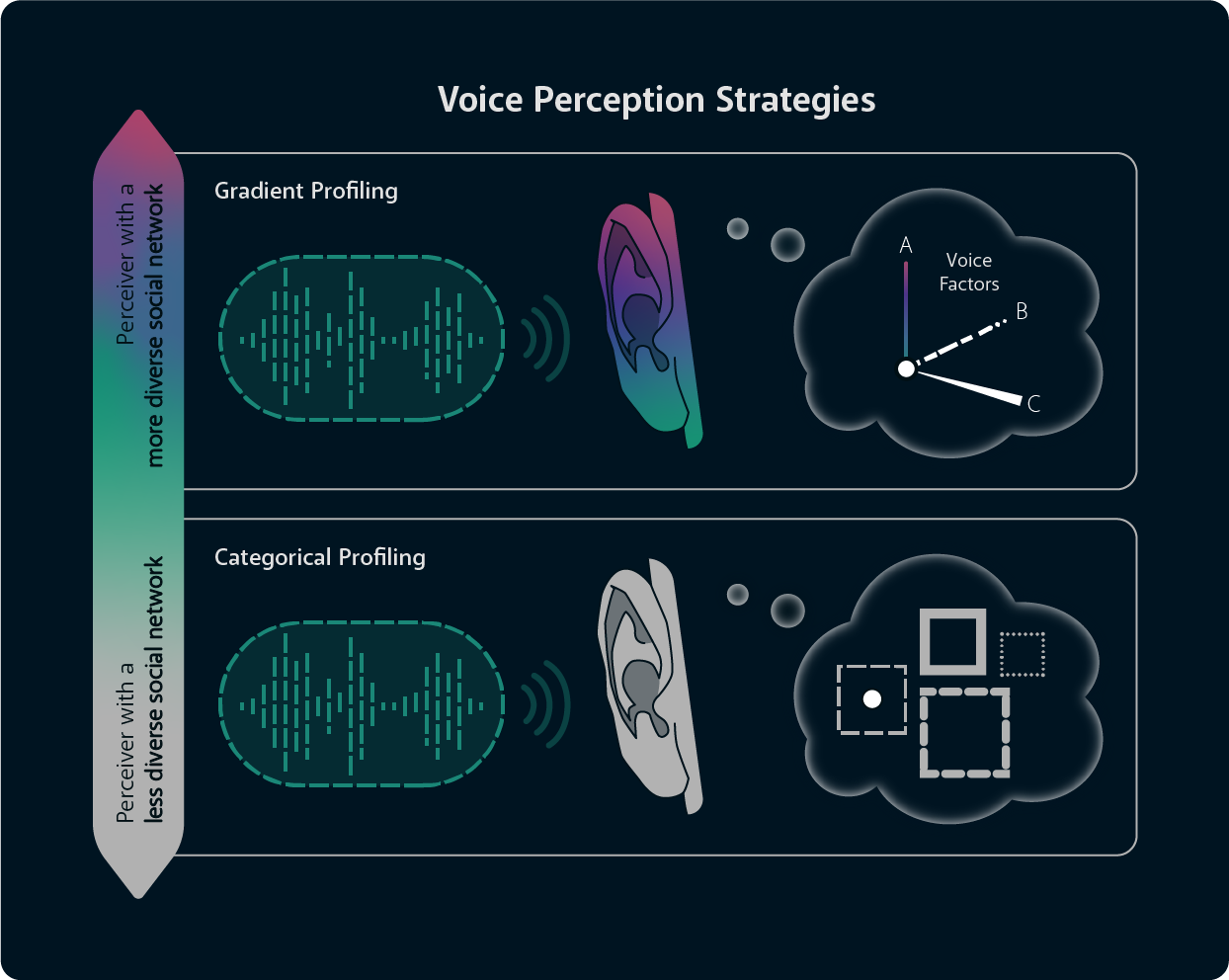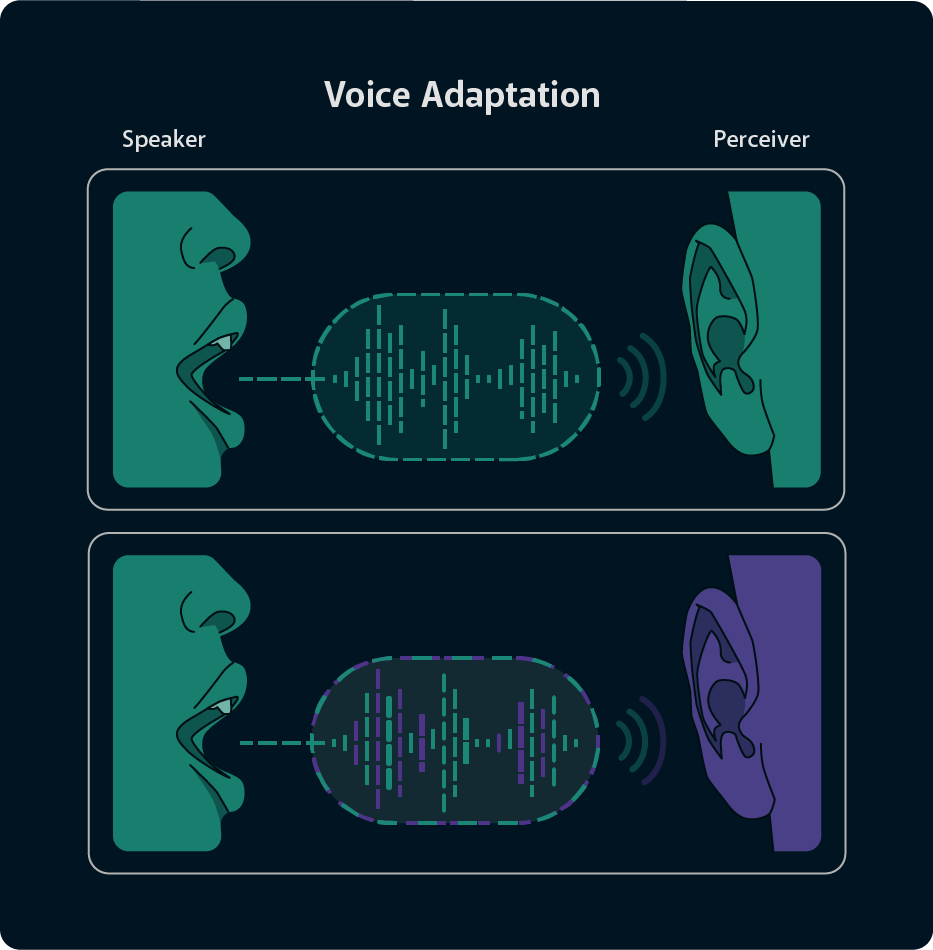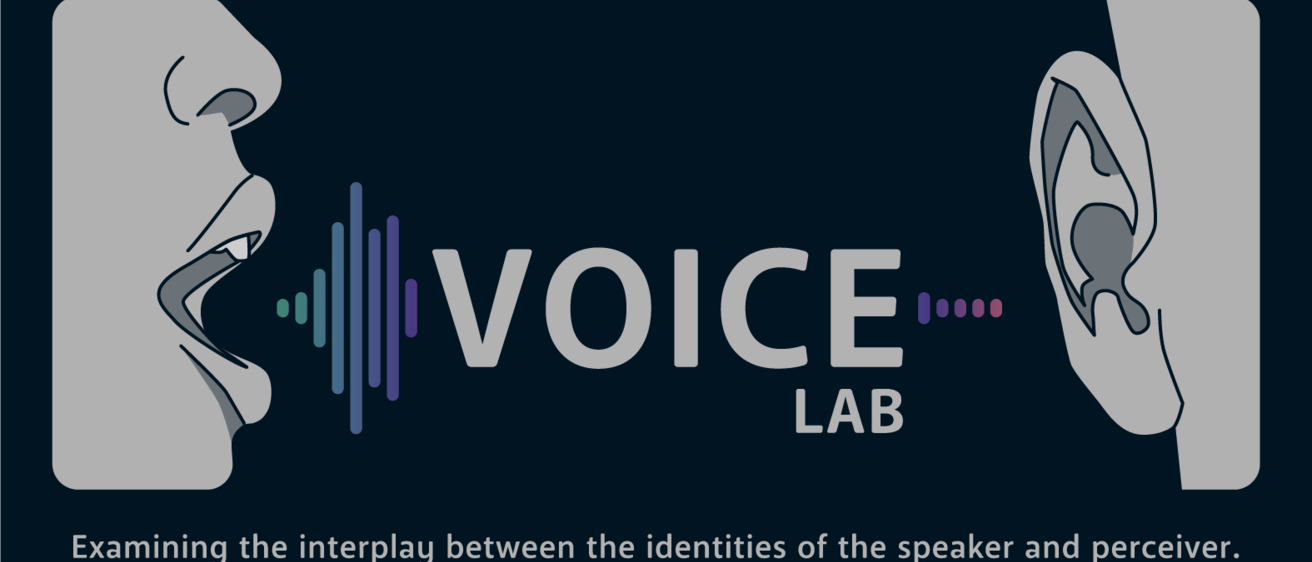Welcome to the Variability of identity through context and experience (Voice) Lab website.

What is in a voice?
The human voice is a composite entity shaped by a myriad of interrelated factors. It serves as a reflection not only of the languages an individual speaks but also of their multifaceted identity, encompassing elements such as ethnic and racial background, gender identity, and various social dimensions. Additionally, the temporal dimension of our voices is influenced by age and other developmental changes. Within the domain of speech perception, a fascinating interplay emerges, wherein both listeners and speakers adapt to each other's speech patterns, creating a reciprocal exchange. Understanding the intersectionality of voices becomes imperative, as listeners, too, possess their own intersectional voices that influence the intricate process of language comprehension. Our lab is committed to investigating this reciprocal exchange: why it happens, and why it does not happen in some contexts. It is essential to note that while these principles hold relevance for spoken language, sign languages may exhibit distinct mechanisms. Although our lab is currently working in the domain of spoken language, we are open to collaborations to investigate the multimodality of this adaptation process.

How do we perceive voices?
Our research sheds light on the gradient nature of speech perception. Traditionally, speech perception was thought to be categorical, through which speech sounds would be perceived as distinct categories. A major setback of this approach is that under such assumptions, gradient speech perception was treated as a delay or deficit. A typical example of this interpretation can be seen with bilingual or linguistically diverse individuals' speech categorization patterns which often manifest themselves as gradient profiles. However, recent advancements in cognitive psychology and statistical methods allow us to explore what gradiency in speech perception means. Our lab, in collaboration with MacLab, led by Dr. Bob McMurray, has been exploring how gradiency is favorable in linguistically diverse social networks.

How do we adapt to new voices?
Measuring social network diversity allows us to investigate the main drivers of gradiency in speech perception. Social network analysis helps examine the ecology of listeners' social interactions. Through this analysis, we study whether the ecological needs require more flexibility or gradiency in speech perception. In our ongoing studies, we also examine whether gradient speech categorization leads to faster adaptation to novel talkers, accents, and contexts. We approach this question through computational modeling, electroencephalography, and behavioral research along with social network analysis.

Contact us
At VoiceLab, we continually seek highly skilled and motivated researchers who are passionate about investigating the complexities of language. As a laboratory dedicated to promoting diversity and inclusivity within the scientific community, we encourage applications from candidates representing a wide range of backgrounds, experiences, and perspectives. If you possess a strong interest in language research and are enthusiastic about joining a dynamic and supportive team, we invite you to contact us and consider contributing your expertise to the VoiceLab community.

